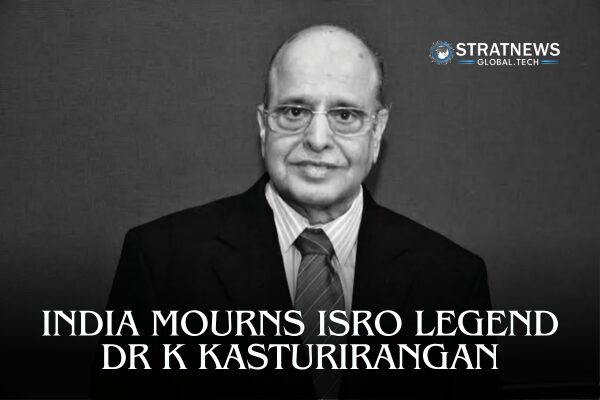Former ISRO Chairman Dr K Kasturirangan Leaves Lasting Legacy
Dr K Kasturirangan, former chairman of the Indian Space Research Organisation (ISRO), passed away in Bengaluru on 25 April at the age of 84. ISRO confirmed his passing in a statement, noting that he died at 10:43 a.m. at his residence. His body will lie in state at the Raman Research Institute (RRI) in Bengaluru on Sunday, 27 April, from 10:00 to 12:00 hrs for the public to pay their respects.
Dr Kasturirangan led ISRO as its fifth chairman from 1994 to 2003 and served as Secretary of the Department of Space for more than nine years. His four-decade career in Indian space science included significant contributions to earth observation, satellite development, and launch vehicle innovation.
Pioneering Contributions to Indian Space Programmes
Dr Kasturirangan began his career with key roles in early missions, including serving as the project director for India’s first experimental Earth observation satellites, BHASKARA-I and II. He played a pivotal role in launching the operational Indian Remote Sensing satellite IRS-1A and oversaw later advancements in the IRS series.
Under his leadership, ISRO achieved several milestones. These include the successful operationalisation of the Polar Satellite Launch Vehicle (PSLV) and the first successful flight of the Geosynchronous Satellite Launch Vehicle (GSLV). As Director of the ISRO Satellite Centre, he supervised the development of the INSAT-2 series and scientific satellites like IRS-1C and IRS-1D, helping to position India among the world’s leading space-faring nations.
Dr Kasturirangan’s vision extended beyond technology. His leadership in developing ocean observation satellites and advanced communication systems significantly enhanced India’s civilian satellite capability.
Legacy in Education, Policy and Environment
Beyond space science, Dr Kasturirangan also made lasting contributions to public policy and education. He served in the Rajya Sabha and was a member of the Planning Commission during the UPA government. He chaired the committee responsible for drafting the National Education Policy 2020 and led the steering committee for the National Curriculum Framework.
An advocate for environmental conservation, he also authored the Kasturirangan Committee report on the Western Ghats in 2013, identifying over 59,000 sq km as ecologically sensitive across six Indian states.
Dr Kasturirangan held degrees in physics from Bombay University and earned his PhD in Experimental High Energy Astronomy in 1971 while at the Physical Research Laboratory in Ahmedabad. His work earned him India’s highest civilian honours — the Padma Shri, Padma Bhushan, and Padma Vibhushan.
National Mourning and Tributes
Prime Minister Narendra Modi paid tribute, calling Dr Kasturirangan “a towering figure in India’s scientific and educational journey.” The Prime Minister praised his visionary leadership and noted that his dedication advanced India’s global reputation in space technology and innovation.
I am deeply saddened by the passing of Dr. K. Kasturirangan, a towering figure in India’s scientific and educational journey. His visionary leadership and selfless contribution to the nation will always be remembered.
He served ISRO with great diligence, steering India’s space… pic.twitter.com/GPdFKPU7b5
— Narendra Modi (@narendramodi) April 25, 2025
Dr Kasturirangan’s passing marks the end of an era in Indian science, education, and policy, leaving a profound impact on multiple generations.


